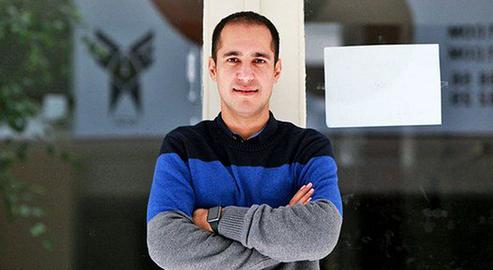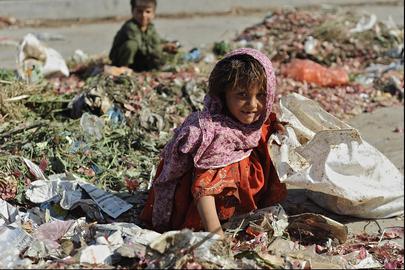Kaveh Madani didn't know anything about Meimanat Hosseini-Chavoshi before he heard the disturbing news of her arrest. But after a bit of research into her case, her situation quickly rang a bell.
Like Madani, Hosseini-Chavoshi is a scientist who worked with advisors close to the government of President Hassan Rouhani. Like Madani, she was targeted by outfits close to the Islamic Republic Guards Corps (IRGC), a shadowy militia that is both a praetorian guard for the Supreme Leader, Ayatollah Khamenei, and a state-within-a-state. Like Madani, she had been arrested for her work in science.
“Some powerful people in Iran have a paranoia of being infiltrated,” Madani, who left Iran in April, narrowly escaping arrest, told IranWire in a phone interview in Persian. “They think any expert who goes to work in Iran wants to infiltrate something. It is hard for them to believe that there are those outside the country who truly care and want to scientifically analyze things.”
He sees similarities between the case against himself and that against Hosseini-Chavoshi.
“She is someone who has a scientific pedigree,” Madani says, and “has published articles and is well known. They are accusing her of giving wrong advice and misleading the policies of the regime, especially now that some of the country’s top authorities have trusted her scientific findings.”
It is clear what a chilling effect such arrests can have on thousands of Iranian scientists abroad. Many had been very helpful when, in 2017, Madani left a top job at London’s Imperial College to head the research and education department of Iran’s Environment Organization. Here was a non-establishment scientist acquiring an almost cabinet-level position. All such hopes were shattered by Madani’s arrest and him subsequently leaving Iran.
He himself is modest about his role in the country and says that there is still hope for progress for science in Iran. But he does acknowledge the serious obstacles.
“It seems that a group of people have problems with any scientific research that goes against their beliefs and policies,” Madani told IranWire, “i.e any science that questions their dominant ideological policies. That’s why they had a problem with me because I told them that the main problem wasn’t climate change but their policies. Because I said one shouldn’t blame climate change, sanctions and the enemy all the time. They have a problem with science that threatens their interests.”
Even when he had a top job in Iran, he knew how controversial certain scientific research in the country could be.
“Some fields were a no-go zone,” Madani says. “For instance, health policy. The quality of water also remains confidential and they don’t publish any information on it.”
Population studies, Hosseini-Chavoshi’s expertise, is also another issue the government keeps secret. Iran had a successful population control policy in the 1990s (although the significant fall in birthrate can’t be attributed to state policy alone, according to demographers) but in recent years, Ayatollah Khamenei has forcefully changed his mind. He has publicly asked for God’s forgiveness for his role in those policies and is now calling for a forceful u-turn: Iran’s population should shoot up to more than 150 million from the current 80 million, he says.
Madani says the “strange” population growth that immediately followed the revolution of 1979 is the reason for many of the country’s problems, including those he has dealt with regarding water and environment. He says some of what the critics say about Iran lacking a “supporting population” might be true but “like always, their narratives are incomplete.”
“Lack of a young supporting population is a true concern but you can’t immediately conclude that population should increase,” Madani says, “It’s not only a numbers question. It’s also about geographical distribution of population.”
He gets excited when he talks about these issues. I can hear in his voice the passion of someone who would have preferred to remain in Iran and serve his only country (unlike Hosseini-Chavoshi, who holds dual Iranian and Australian citizenship, Madani only has one passport).
He speaks with remorse when asked about the reactions he got when he headed research that showed much of Iranian soil was not suited for agriculture.
“They cursed us and said, ‘we are farming here so there is no problem and you are running a conspiracy,’” Madani says.
Speaking about the case of environmental activists who have been in prison in Iran for almost a year, he says that the situation is volatile, but it could have happened in any other area or on another issue.
“What they are afraid of are credible people, people with respect and credibility who come to challenge the dominant ruling narrative,” Madani says.
Meimanats and others continue to stand up to the goliath of unaccountable power in Iran. The center of Iranian power, the house and offices of Ayatollah Khamenei, is ironically located on a Tehran avenue named after Louis Pasteur, the 19th-century French biologist and chemist known for his fierce advocacy of the scientific method.
In a famous quotation, Pasteur gave advice to young scientists: “Whatever your career may be, do not let yourselves become tainted by a barren skepticism... live until the time comes when you have the immense happiness of thinking that you have contributed in some way to the progress and to the good of humanity.”
In the harrowing cells of Tehran’s notorious Evin Prison, Dr Hosseini-Chavoshi, detained for her work on population in Iran, might be thinking of such words.
visit the accountability section
In this section of Iran Wire, you can contact the officials and launch your campaign for various problems

























comments